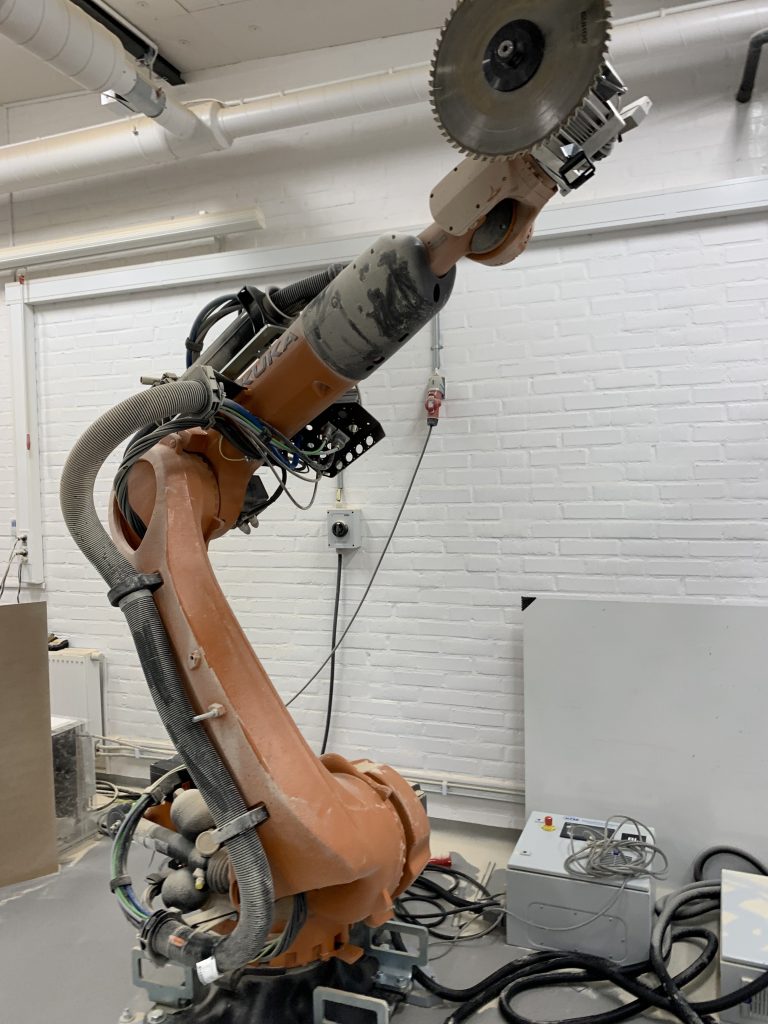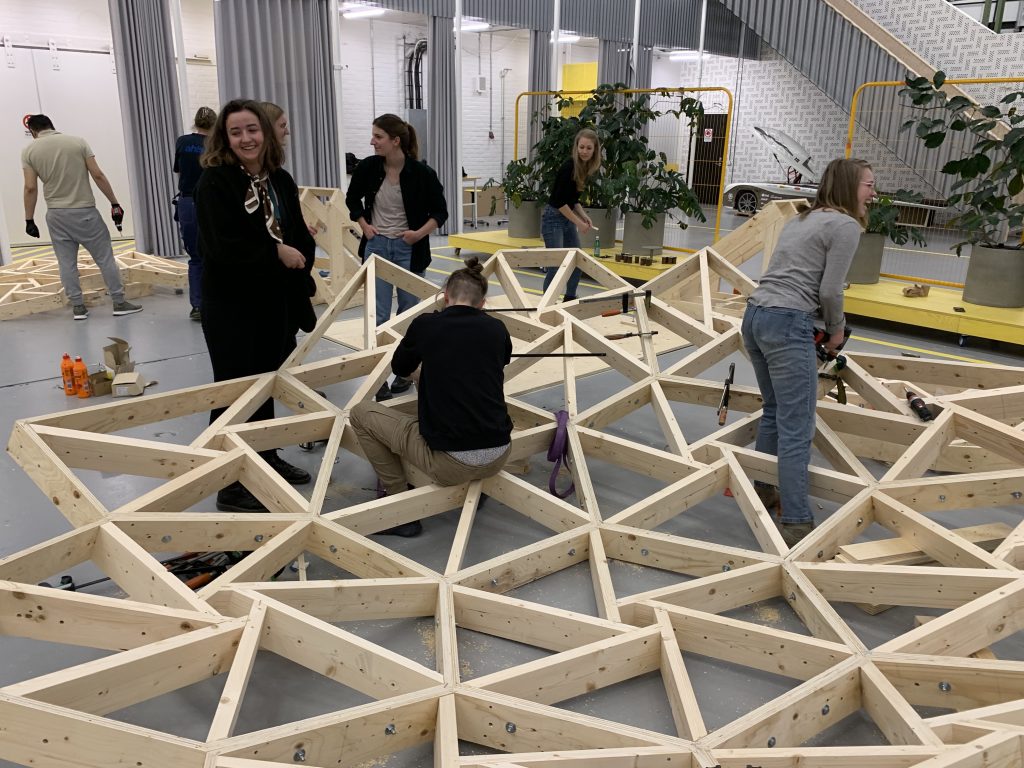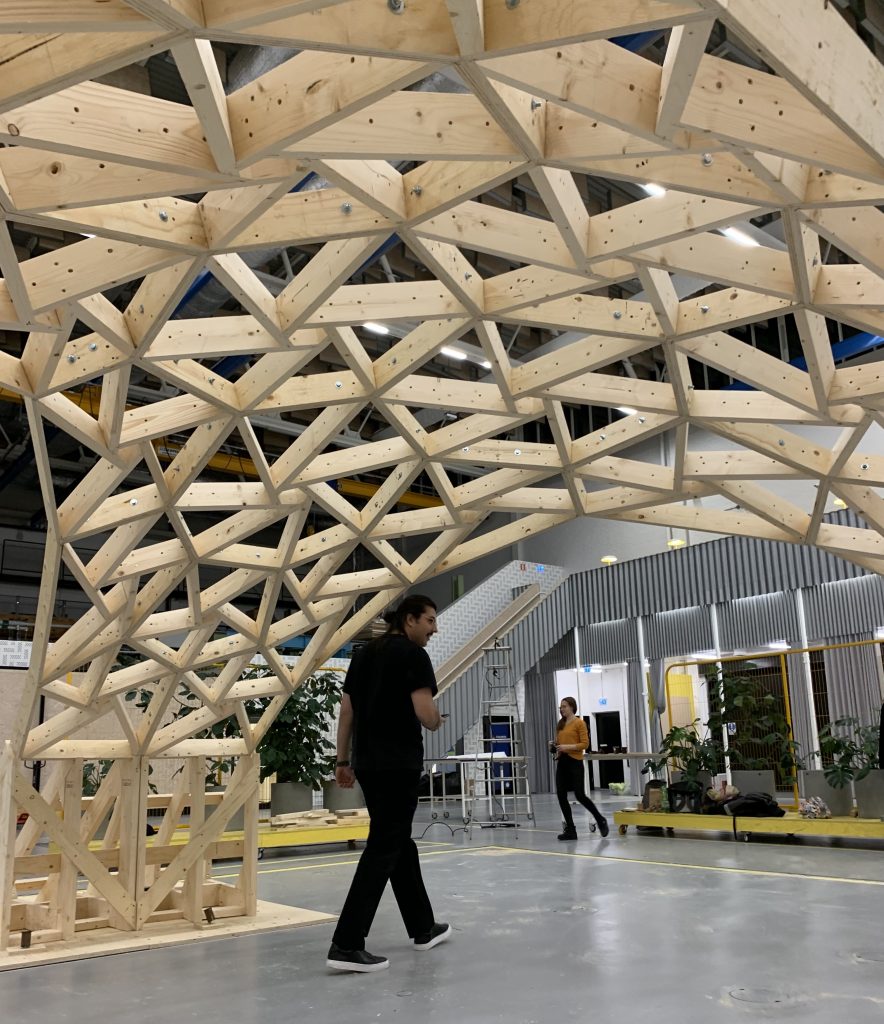Reciprocal Shell 2022 – Research Project + International Design & Build Workshop between Chalmers University of Technology and Augsburg University of Applied Sciences.
The Reciprocal shell ist a material-saving lightweight structure. It was designed and built by a team of researchers and students from Chalmers University of Technology and Augsburg University of Applied Sciences. The demonstrator is a freeform structure, optimised for fabrication and assembly.
The production process is completely carried out with only a saw blade, which allows for very fast and precise cuts. The primary topology of the shell are planar polygonal facets where always 3 edges are joined, therefore a constant distance offset for the thickness of the shell is possible. Within these polygonal segments, cross bracing is achieved through a reciprocal configuration of wood beams. Due to the freeform geometry of structurally optimal shell shapes, diagonals within the polygons cannot directly connect corners. Joining the cross-bracing elements in the center of the polygons with a reciprocal node allows for stronger joints compared to connecting 5,6 or 7 beams in a single point. This allows for strong nodes throughout the structure, without the use of metal plates or brackets. Also, the fabrication process creates only a minimal amount of offcuts and allows for the use of simple and cost efficient, short solid wood pieces. It is ideal for hardwood uses. After the design and build workshop, the structure will be load tested and then completed with a transparent roof cover. Finally, it will be exhibited as part of the 300year anniversary festival of the city of Gothenburg.



The research was supported by Chalmers University of Technology and by the FNR research project No. 2220HV001X / .TSI – Development of an interface for the automated structural calculation of novel, digitally prefabricated wooden structures with wood-wood connections.
Project Credits:
Chalmers University + Augsburg University of Applied Sciences
Researchers:
Amin Adelzadeh, Dr. Hamed Karimian, Karl Åhlund, Jonas Lundberg, Prof. Dr. Christopher Robeller (Chalmers Jubilee visiting Professor 2022)
Students:
Agathe Ducos, Adrien von der Weid, Alexandra von Bartschikowski, Anne Wicklein, Clément Braekevelt, Edith Tamm, Edona, Ege Can Yazici, Erika Perleroth, Felicia Raunås, Felix Bossenmaier, Herman Ehrnberg, Jael Kahlenberg Caso, Jakub Maliborski, Katharina Harre, Lina Svantesson, Linn Appelgren, Lluc Chia Colomer, Lorenzo Mulatero, Lukasz Gnatek, Madalin Manu, Maija Virkki, Mauritz Renz, Natasha Zwarts, Nina Tran, Nora Reis, Parjaree Manuch, Rick Persson, Rikard Murgård, Sakurako Matsuoka, Samira Sarreshtedari, Sara, Murphy Colome, Selina Ahrens, Selina Christ, Simon Ciompi, Simon Wikström, Sofia Deixelberger, Theresa Haase, William Havner, Ziming Wang
Special thanks to Chalmers University for the support of the project and to their workshop staff Tabita Nilsson, Peter Lindblom and Peter Bäckström
